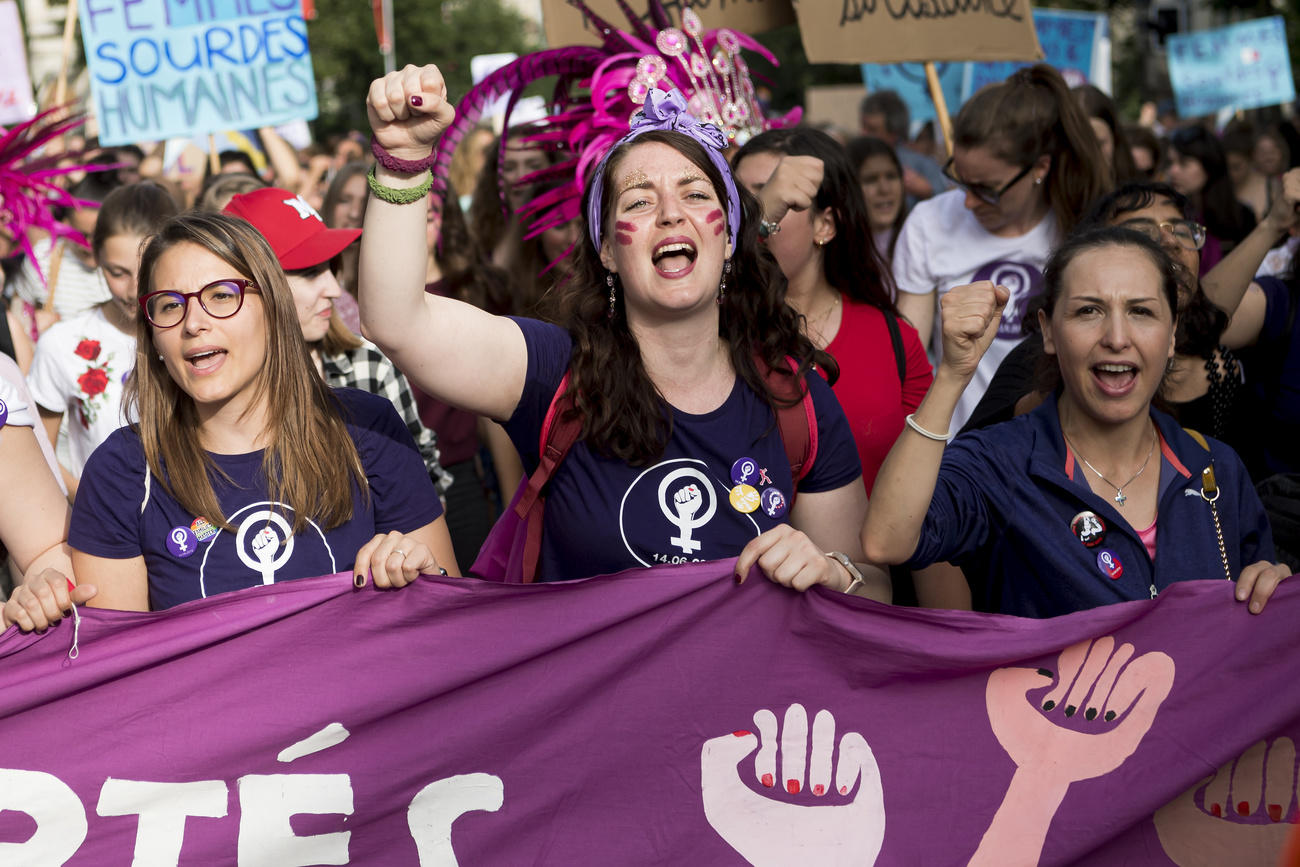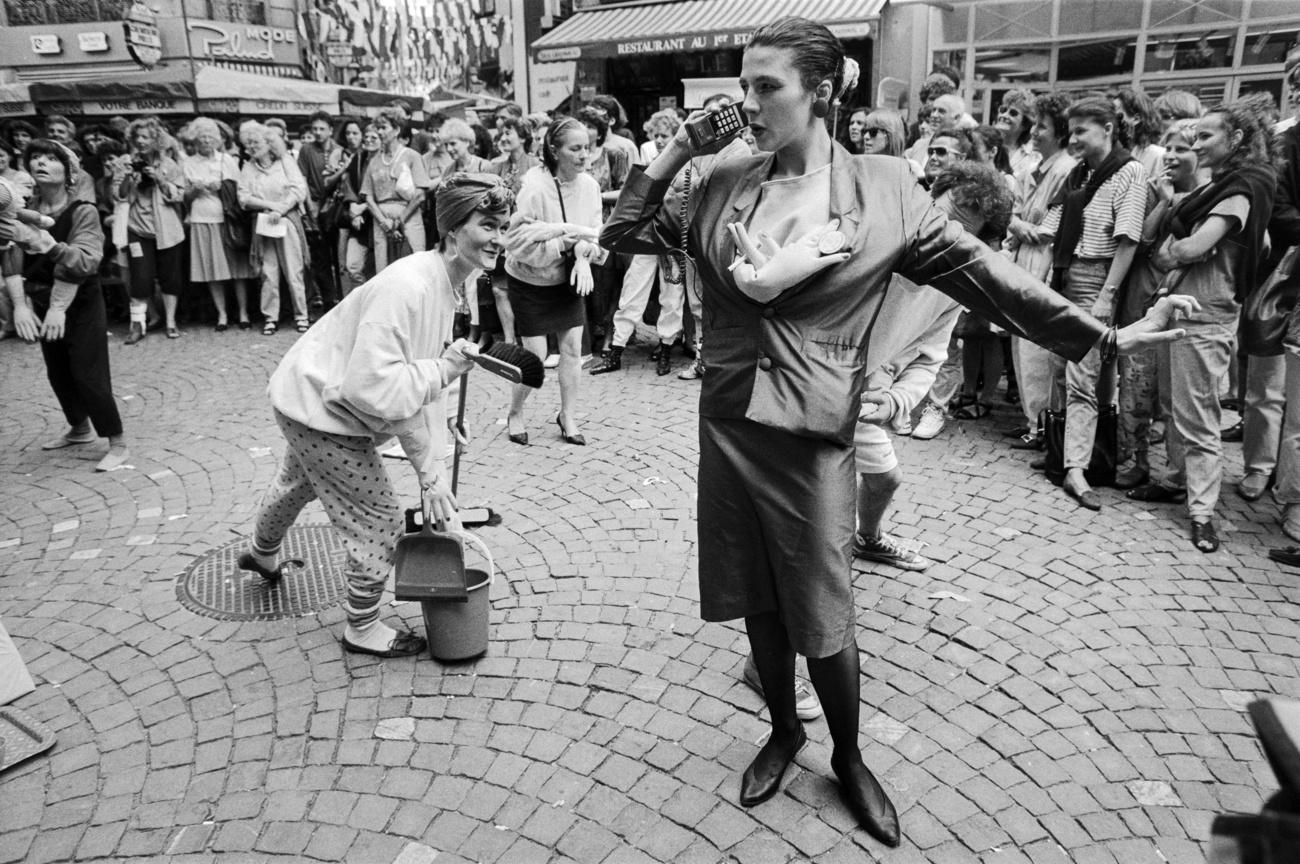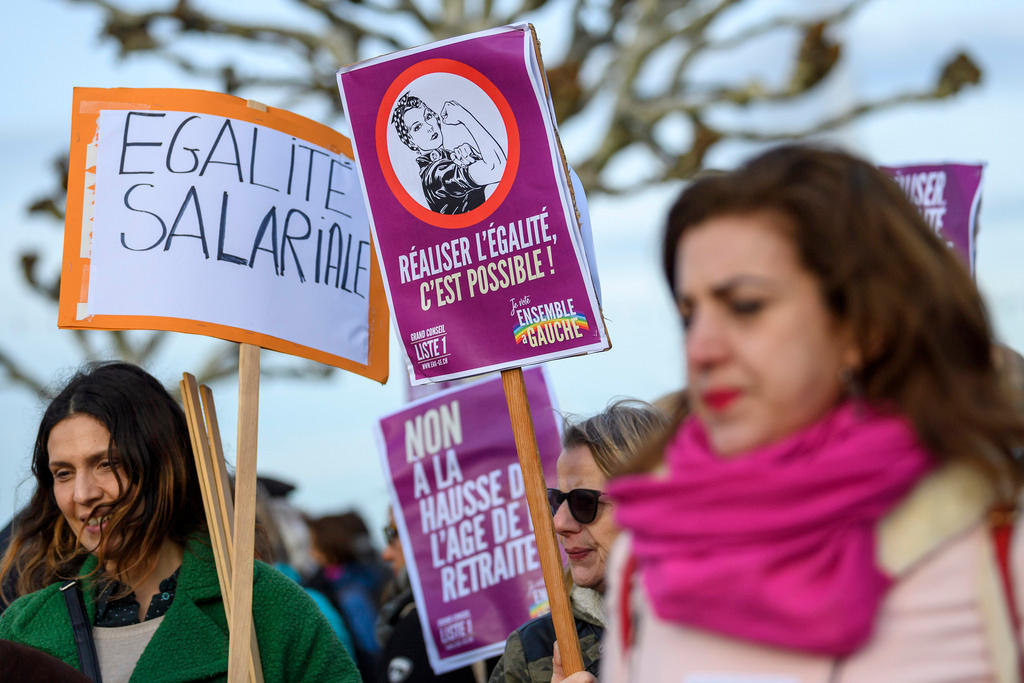Huge turnout for women’s strike in Switzerland

Women across Switzerland took to the streets by the tens of thousands on Friday in a historic strike demanding equal treatment and conditions compared with their male counterparts.
A first estimate by the Swiss Trade Union FederationExternal link on Friday evening said the number was as high as “hundreds of thousands” during the day. This was before the larger protests planned for the evening had taken place.
The protests organised by trade unions come almost three decades after a 1991 strike, when women demanded that a constitutional article on equality of the sexes be translated into concrete legislation.
Women say unequal treatment persists, including lower pay, with women on average earning 20% less than men. Discrimination and the difficulty of combining work and family are also issues.
‘Bigger than 1991’
“June 14, 2019 will go down as the largest political demonstration in the recent history of Switzerland, bigger even than the women’s strike of 1991,” the Swiss Trade Union Federation said in its statement.
Women have been marking the strike in all large cities in historic numbers. Particularly pleasing was the number of young women, it added. “This all shows that equality for women at work and in society must continue and will continue,” the statement said.
+ The statistics underpinning women’s dissatisfaction in Switzerland
What happened during the day
In Bern, the capital, up to 40,000 turned out in front of the parliament building and in the streets.
Different generations, marching together. #frauenstreik19External link pic.twitter.com/EEBiGxiNaYExternal link
— Jo Fahy (@jofahy) June 14, 2019External link
The square in front of the parliament building was absolutely packed.
Church bells tolled at 11.00 to mark the official beginning of the strike in several cities and towns; in Lausanne, women gathered during the night for a symbolic burning of objects such as bras and ties; in Zurich, demonstrators stopped the traffic from moving in the centre of the city. Around 70,000 people in all took part in the final demonstration at Helvetiaplatz, although some estimates had the numbers at twice this.
Around 12,000 people turned out to protest in Geneva.
Many people marched with banners, music and made noise to draw attention to issues like pay and lack of childcare.
Parliament, ministers
The Swiss parliament interrupted its session for 15 minutes. Several government members have also been active, including interior minister Alain Berset, who released a silent video to highlight the problems faced by women in Switzerland.
(Berset captions: Equality between men and women is still not a reality; wage inequalities; worse pension plans; less women in leadership roles; more house and care work; domestic violence and assault; we need to finally change this; now #14Juni2019)
Transport Minister Simonetta Sommaruga was at a baccalaureate secondary school in Lausanne to talk to the students about equality. Young women were much more prepared to speak up than in her day, she noted.
The government also said that equality in all areas was a priority.
Meanwhile, a “tampon tax” petition, calling for lower VAT on feminine hygiene products and signed by more than 11,000 people, was handed in to parliament on Friday.
Strikes, a rarity
Although called a “strike”, many women have been concerned about neglecting their workplaces in a country where such strike action is rare. Symbolically, demonstrators have called for women to finish work at 15.24 on Friday afternoon, a time reflecting the 20% wage disparity with men.
Many women – and men, who are in support of the movement – are wearing fuchsia purple clothing on Friday, the symbolic colour of the event.
The strike has also been covered in the foreign media, including in the Financial Times and on the BBC. There was also support from the United Nations.
Women across Switzerland have taken to the streets to demand equal pay and protest the slow pace towards gender equality. #FrauenstreikExternal link #GrèvedesFemmesExternal link via @BBCWorldExternal link https://t.co/huiLvnaKLLExternal link
— UN Women (@UN_Women) June 14, 2019External link

More
Why Swiss women are back on strike today

In compliance with the JTI standards
More: SWI swissinfo.ch certified by the Journalism Trust Initiative




















You can find an overview of ongoing debates with our journalists here . Please join us!
If you want to start a conversation about a topic raised in this article or want to report factual errors, email us at english@swissinfo.ch.